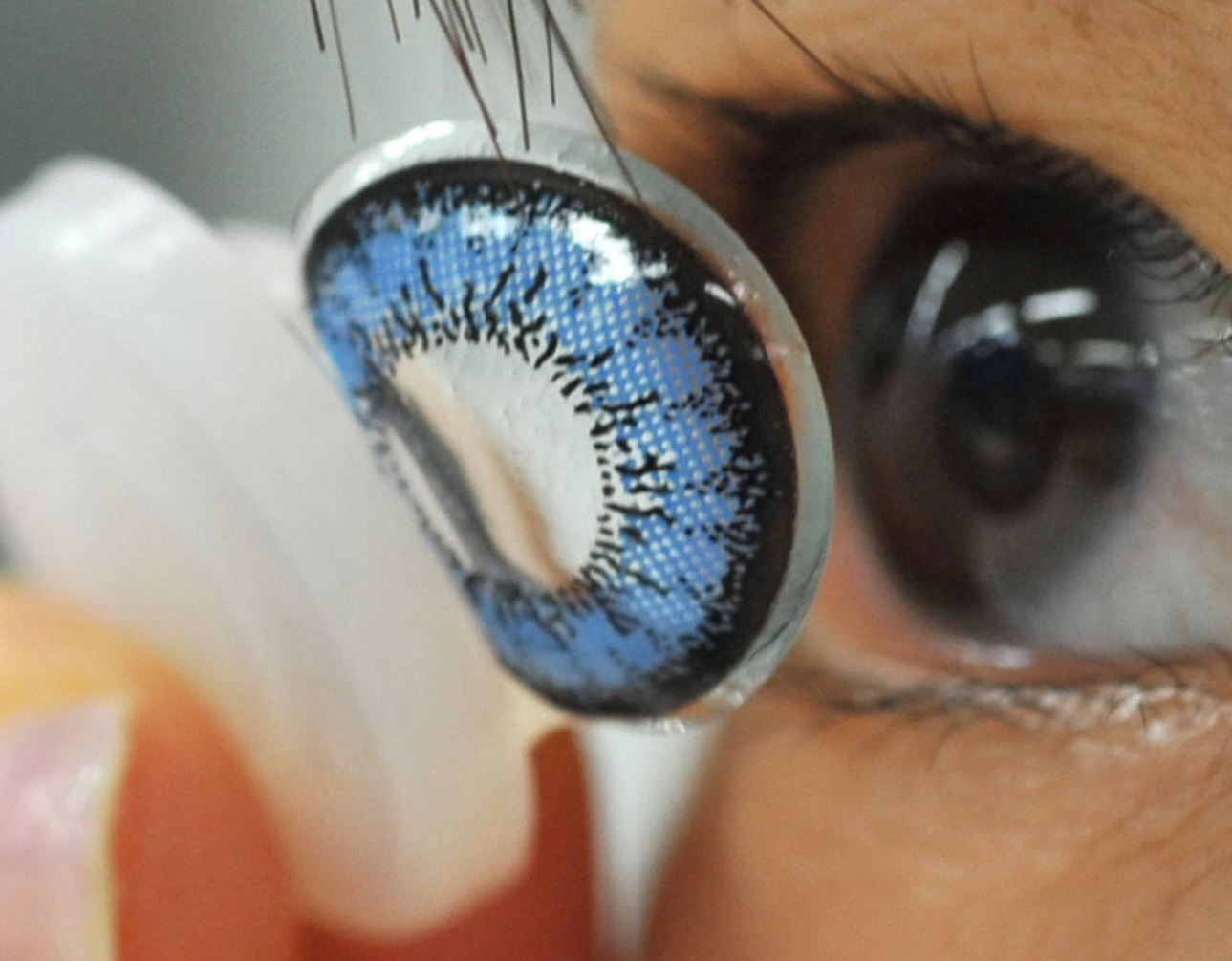Polycystic ovary syndrome (PCOS) is a common hormonal condition afflicting women of childbearing age. The worldwide prevalence of PCOS goes as high as 48%. The challenges associated with this condition usually relate to skin health or fertility; however, it can also affect women’s eyes, leading to uncomfortable conditions like dry eye, making wearing contact lenses more difficult.

The link between PCOS and dry eye
A 2021 study examined 47 PCOS patients to evaluate tear function changes. The research found a connection between dehydroepiandrosterone sulfate (DHEA-S), which is elevated among PCOS women, and average tear break-up time (BUT), a test used to assess for evaporative dry eye. The higher the DHEA-S found, the lower the BUT, or the time it takes between one blink and the appearance of the first dry spot in the tear film. The link between dry eye and PCOS is worth considering, especially for the millions of women who wear contact lenses.
PCOS is characterized by an imbalance of sex hormones like androgens, which can affect tear gland function. According to the International Journal of Ophthalmology, high androgen levels can inhibit the activity of meibomian glands, which produce the oily layer of the tear film. These changes can raise the likelihood of dry eye for female contact lens wearers with PCOS. However, addressing PCOS is essential not just for eye health but also for overall health.
Managing PCOS for wellness
PCOS affects various aspects of the body. So, regardless of one’s predisposition for dry eye, treating PCOS as a whole can help improve symptoms and lower the risk of chronic health problems like diabetes, heart disease, and cancer. Around 38% to 88% of women with this condition are overweight or obese, so embarking on a PCOS diet to lose weight is the first intervention for managing symptoms and also looking after eye health. Research shows that omega-3 fatty acids in salmon, trout, and tuna decrease waist circumference among PCOS women. These heart-healthy fats can also reduce inflammation in the eye and tear ducts. The lifestyle changes resulting from these healthier habits, such as consistent sleep schedules and stress management, may also contribute to enhanced eye health.
As one reaches a healthier weight, the lowered PCOS-linked health risks can benefit the eyes. For example, dry eye syndrome affects an estimated 54% of people with type 2 diabetes. By bringing down diabetes risk, you also lessen the likelihood of developing diabetes-related dry eye. However, like PCOS, vision issues like myopia are incurable, meaning women who wear contact lenses will likely do so long-term. Here are a few ways to minimize contacts-related discomfort:
Contact lens tips
PCOS women who wear contact lenses likely know the importance of eye drops in maintaining eye moisture. However, as we discussed, the type of eye drops matters. Those with dry eyes should avoid eye drops with preservatives. While they discourage the growth of bacteria, people with moderate or severe dry eye may experience irritation during use. Preservative-free eye drops have fewer additives, which makes them more compatible for frequent use, as is the case with dry eye sufferers. Secondly, choose the right type of contact lenses. Silicone hydrogel lenses are ideal because of their high oxygen permeability to the cornea, which might help reduce dryness compared to other types.
Thirdly, make changes in how and how often you wear contacts. Do not wear contacts to bed. This may seem obvious, but it bears repeating since one in three contact users worldwide still admit to doing so. This disrupts your natural tear film and puts you at a higher risk of corneal infections. Giving your eyes a break from contacts is also a good idea. Switching to traditional glasses for a few hours daily exposes your eyes to more oxygen and nourishment from the tear film. And finally, avoid wearing the same contacts for longer than directed. Debris buildup can interfere with tear flow, resulting in dryness.
Just as PCOS can be managed with fundamental lifestyle changes, dry eye can be managed with proper eye habits, allowing you to enjoy better vision and overall health.
Read More:

